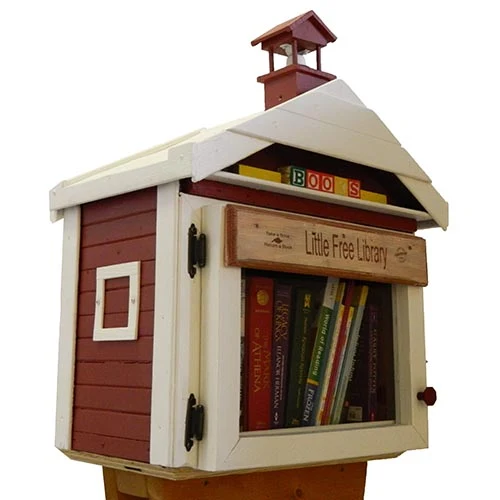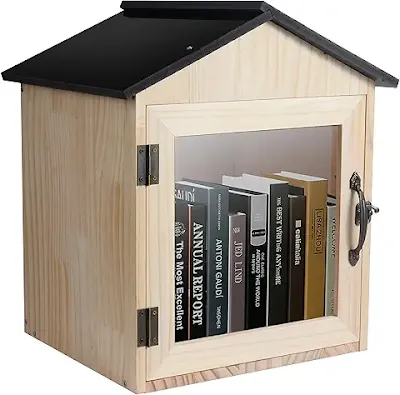Take a Book, Leave a Book: Embracing Reuse With Little Free Libraries
I am always looking for ways to avoid sending my unwanted items to the landfill wherever I can. Recently we’ve been sorting through books and are looking for a sustainable way to dispose them. This is where the Little Free Libraries comes in. First, let me step back and explain why I have this need to share the books.
 |
| Little Red Library Train. Photo by chris robert on Unsplash |
The 3Rs: Reduce, Reuse, Recycle
I grew up with the 3Rs which have been around since the 1970s. The notion of the 3Rs gained traction as a response to growing environmental concerns. I have embraced the 3Rs to try to live more sustainably and minimize my environmental impact.
I focus on Reducing waste by making mindful choices like buying products with less packaging and consuming only what I need. Reusing is about finding new purposes for items I already have or finding a way for others to use what I don’t need anymore. Recycling comes into play when I sort bottles, plastic containers and cardboard for the city pick-up to conserve resources and reduce landfill waste. These principles help me contribute to a healthier planet and makes me feel more responsible about my consumption habits.
 |
| 3R logo. Source: www.wealthinwastes.com |
When it comes to books, I’m looking for a way to reuse them – that way they don’t put pressure on the recycling system or end up at the garbage dump. Thank goodness for the free libraries in my neighbourhood!
History of Little Free Libraries
 |
| First Little Free Library. Source: Source: www.littlefreelibrary.org |
The idea was very well received, gained popularity and grew into a global movement. Little Free Libraries have become widespread and are found in neighborhoods around the world, promoting literacy, community engagement, and a love of reading.
The Little Free Library organization was formally established in 2012 to support the program, but many people create their own DIY libraries and don’t register with the non-profit. It really is a grass roots concept with people setting them up in front of their house so we can “take a book, leave a book”.
 |
| Photo by Jacqueline Smith Source: www.pexels.com |
Getting Your Own Little Library
If you are interested in putting up your own little library, you can either make one yourself or buy one. DIY plans and instructions are available at the Little Free Library website. If you are handy, the other option is to reuse what you have at home to put one together, like an old cabinet that can be modified.Here’s a unique example of a DIY little library someone put together using an IKEA metal cabinet for about $50:
 |
| DIY Little Free Library. Source: www.littlefreelibrary.org |
 |
| Little Free Library kit. Source: www.Amazon.ca |
We don’t have our own little library in front of our house, but our neighbourhood has them dotted around, and I use them to recycle our books. I’d donate our used boods to the local public library, but they don’t put them into circulation, and require books that are current and in tip-top condition. Most of our books don’t meet these criteria so the neighbourhood little libraries are a terrific option.
Sharing Books
We have been going through some of the piles of old books and started leaving them in the little free libraries in our neighbourhood so other people can enjoy them. I think these are a great idea because the books aren’t ending up in the local landfill. Not everyone can afford to go out and buy books, so it’s a great way to exchange them in the community.
I have heard some negativity towards the Little Free Libraries based on a University study because they are often found in wealthier neighbourhoods, where people can afford to erect a little library, and neighbours have used books to share. I suppose there is some truth to this, but at the same time not everyone in our neighbourhood is wealthy. It’s a mixed bag of university students, new immigrants, seniors, families and social housing so there are plenty of people who can make use of what’s being shared.
I don’t see much of a downside to recycling books and sharing a love of reading. What do you do with your old books? Do you have Little Free Libraries in your neighbourhood?


Comments
Post a Comment
You can login with your google account to leave a message